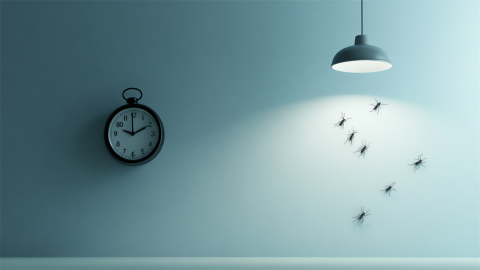Why do mosquito bites cause bumps?
Generally speaking, the main reasons for swelling after being bitten by a mosquito include irritation caused by components in mosquito saliva, immune system response, weak skin barrier function, localized allergic reactions, and skin infections. If discomfort occurs, it is recommended to seek timely medical treatment at a qualified hospital. Detailed explanations are as follows:
1. Irritation from Saliva Components
When mosquitoes bite, they release saliva containing anticoagulant enzymes, formic acid, and other substances. These components can irritate skin tissue upon entering the body, triggering localized inflammatory reactions and causing swelling. Immediately washing the bite area with soap and water can neutralize acidic substances and reduce irritation. Calamine lotion can also be applied to relieve discomfort.
2. Immune System Response
The human immune system identifies foreign substances in mosquito saliva as invaders, triggering a defense mechanism that releases inflammatory mediators such as histamine, causing local vasodilation and increased permeability, resulting in redness and swelling. Avoid scratching the bite to prevent exacerbating the inflammation. When itching is evident, chlorpheniramine maleate tablets can be used under a doctor's guidance to alleviate symptoms.

3. Weak Skin Barrier Function
Infants and individuals with skin conditions such as eczema have weaker skin barrier functions and a reduced ability to resist external irritants, making them more prone to noticeable swelling after mosquito bites, with slower recovery. Daily attention should be paid to protecting the skin. Infants can use baby-specific mosquito repellents to reduce bites, while eczema patients can use urea ointment under a doctor's guidance to repair the skin barrier.
4. Localized Allergic Reaction
Some people are allergic to certain components in mosquito saliva, experiencing significant allergic reactions after being bitten, characterized by large swellings, severe itching, and even blisters. Under a doctor's guidance, antiallergic medications such as levocetirizine hydrochloride oral solution, desonide cream, and mometasone furoate cream can be used to alleviate allergic symptoms.
5. Skin Infection
Scratching the bite area can cause skin damage, allowing bacteria such as Staphylococcus aureus and streptococcus to invade and cause localized infection, intensifying redness and swelling, causing pain, and even resulting in pus formation. Under a doctor's guidance, antimicrobial ointments such as mupirocin, fusidic acid cream, and erythromycin ointment can be used to combat infection and promote skin healing.
In daily life, it is important to take mosquito prevention measures, such as using mosquito nets and repellents; maintaining skin cleanliness to avoid mosquito breeding; avoiding scratching after being bitten to prevent infection; and seeking medical attention promptly if severe allergic or infection symptoms occur.





